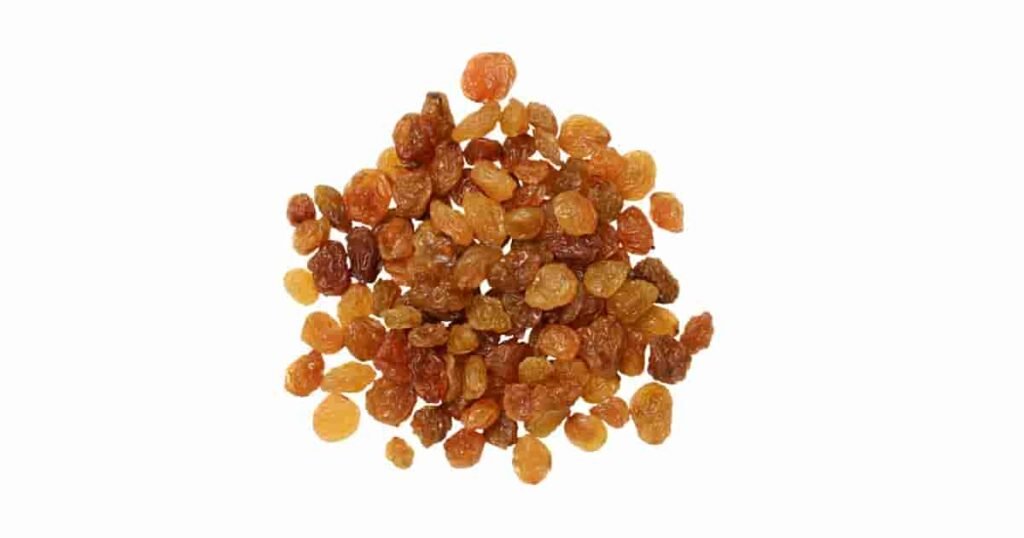For centuries, Brahmi, also known as Bacopa Monnieri, has been a cornerstone of Ayurvedic medicine, celebrated for its cognitive-enhancing and therapeutic properties. While its traditional uses are well-documented, modern science is now beginning to unravel the intricate mechanisms behind Brahmi’s remarkable benefits. This herb, often nicknamed the “herb of grace,” offers a multifaceted approach to well-being, impacting everything from memory and focus to anxiety and skin health.
Important Benefits of Brahmi

In this comprehensive guide, we delve into the top 21 important benefits of Brahmi, supported by scientific evidence and traditional wisdom. Prepare to discover how this ancient herb can potentially contribute to a healthier, more vibrant you.
1. Enhanced Cognitive Function and Memory Improvement:
This is arguably the most well-known benefit of Brahmi. Studies have consistently shown that Brahmi can improve various aspects of cognitive function, including memory recall, retention, and processing speed. Its active compounds, bacosides, are believed to facilitate the repair and regeneration of damaged neurons, improving nerve impulse transmission. This makes Brahmi particularly useful for students, professionals requiring sharp focus, and older adults seeking to maintain cognitive health.
Evidence: Research indicates that Brahmi can significantly improve memory performance in both healthy individuals and those experiencing age-related cognitive decline. Several studies highlight its positive impact on verbal learning, logical memory, and attention span.
2. Reduced Anxiety and Stress:
Brahmi exhibits adaptogenic properties, meaning it helps the body adapt to stress and maintain balance. By regulating the release of cortisol, the stress hormone, Brahmi can help calm the mind, reduce feelings of anxiety, and promote a sense of relaxation.
Evidence: Studies demonstrate that Brahmi can decrease anxiety symptoms and improve overall mood by modulating the hypothalamic-pituitary-adrenal (HPA) axis, the body’s central stress response system.
3. Improved Focus and Concentration:
In our increasingly demanding world, maintaining focus can be a challenge. Brahmi can help improve concentration and attention span by enhancing blood flow to the brain and supporting the health of nerve cells. This can translate to increased productivity and improved learning outcomes.
Evidence: Research suggests that Brahmi can improve attention performance and reduce mental fatigue, leading to better concentration and cognitive endurance.
4. Neuroprotective Properties:
Brahmi contains powerful antioxidants that protect brain cells from damage caused by free radicals. This neuroprotective effect is crucial for maintaining long-term cognitive health and potentially delaying the onset of age-related neurodegenerative diseases.
Evidence: Studies have shown that Brahmi can protect neurons from oxidative stress and inflammation, both of which are major contributors to cognitive decline and neurodegenerative disorders.
5. Improved Sleep Quality:
By reducing anxiety and promoting relaxation, Brahmi can indirectly improve sleep quality. A calmer mind is more conducive to restful sleep, allowing the body to repair and rejuvenate overnight.
Evidence: While more research is needed, anecdotal evidence and preliminary studies suggest that Brahmi can help improve sleep duration and reduce sleep disturbances, particularly in individuals experiencing anxiety or stress.
6. Enhanced Learning Ability:
Brahmi’s ability to improve memory, focus, and cognitive function collectively contributes to enhanced learning ability. By optimizing brain function, Brahmi can help individuals absorb and retain information more effectively.
Evidence: Studies have demonstrated that Brahmi can improve learning performance in children and adults, making it a valuable tool for students and anyone seeking to acquire new skills.
7. Management of ADHD Symptoms:
Some studies suggest that Brahmi may be beneficial in managing symptoms of Attention Deficit Hyperactivity Disorder (ADHD), such as inattention, hyperactivity, and impulsivity. However, more research is needed in this area.
Evidence: Preliminary studies have shown promising results, indicating that Brahmi may improve attention and reduce hyperactivity in children with ADHD. However, it’s crucial to consult with a healthcare professional before using Brahmi to manage ADHD.
8. Anti-Inflammatory Properties:
Brahmi possesses potent anti-inflammatory properties, which can help reduce inflammation throughout the body. Chronic inflammation is linked to a wide range of health problems, including heart disease, arthritis, and cancer.
Evidence: Studies have demonstrated that Brahmi can inhibit the production of inflammatory molecules, reducing inflammation in various tissues and organs.
9. Antioxidant Effects:
As mentioned earlier, Brahmi is rich in antioxidants, which protect cells from damage caused by free radicals. This antioxidant activity helps neutralize harmful free radicals, reducing oxidative stress and promoting overall health.
Evidence: Research shows that Brahmi can increase the levels of antioxidant enzymes in the body, protecting against oxidative damage.
10. Potential Benefits for Alzheimer’s Disease:
Due to its neuroprotective and antioxidant properties, Brahmi is being investigated for its potential benefits in preventing and managing Alzheimer’s disease. While it’s not a cure, it may help slow the progression of the disease and improve cognitive function.
Evidence: Preliminary studies suggest that Brahmi may help reduce the formation of amyloid plaques, a hallmark of Alzheimer’s disease, and improve cognitive performance in patients with mild to moderate Alzheimer’s. However, more extensive research is needed.
11. Improved Blood Circulation:
Brahmi can help improve blood circulation, particularly to the brain. This increased blood flow ensures that brain cells receive adequate oxygen and nutrients, which are essential for optimal function.
Evidence: Studies suggest that Brahmi can dilate blood vessels and improve blood flow, particularly in the cerebral arteries.
12. Skin Health Benefits:
Brahmi is believed to possess skin-rejuvenating properties. Its antioxidant and anti-inflammatory effects can help protect the skin from damage, reduce inflammation, and promote wound healing. It’s sometimes used topically in creams and lotions.
Evidence: While more research is needed, anecdotal evidence suggests that Brahmi can help improve skin health, reduce acne, and promote a more youthful appearance.
13. Hair Growth and Health:
Brahmi is often used in traditional Ayurvedic hair oils to promote hair growth and improve hair health. It’s believed to strengthen hair follicles, reduce hair loss, and add shine and volume.
Evidence: While scientific evidence is limited, anecdotal evidence and traditional use suggest that Brahmi can nourish the scalp, strengthen hair roots, and promote hair growth.
14. Improved Immunity:
Brahmi can help strengthen the immune system by boosting the activity of immune cells and protecting them from damage. A strong immune system is essential for fighting off infections and maintaining overall health.
Evidence: Studies have shown that Brahmi can enhance the activity of immune cells, such as macrophages and natural killer cells, improving the body’s ability to fight off infections.
15. Anti-Epileptic Properties:
Research suggests that Brahmi may have anti-epileptic properties, potentially reducing the frequency and severity of seizures.
Evidence: Some studies have shown that Brahmi can reduce the severity and duration of seizures in animal models. However, more research is needed to confirm these findings in humans.
16. Potential Benefits for Asthma:
Brahmi’s anti-inflammatory properties may help reduce inflammation in the airways, potentially alleviating symptoms of asthma.
Evidence: Preliminary studies suggest that Brahmi may have bronchodilatory effects, helping to open up the airways and improve breathing. However, more research is needed to confirm these benefits in individuals with asthma.
17. Improved Liver Function:
Brahmi may help protect the liver from damage and improve its function.
Evidence: Studies have shown that Brahmi can protect liver cells from oxidative stress and inflammation, potentially improving liver function and reducing the risk of liver disease.
18. Pain Relief:
Brahmi may possess analgesic (pain-relieving) properties, helping to reduce pain associated with various conditions.
Evidence: Some studies suggest that Brahmi can reduce pain and inflammation in animal models. However, more research is needed to confirm these findings in humans.
19. Potential for Cancer Prevention:
While research is still in its early stages, some studies suggest that Brahmi may have anti-cancer properties, potentially inhibiting the growth and spread of cancer cells.
Evidence: Preliminary studies have shown that Brahmi can inhibit the growth of cancer cells in vitro. However, more research is needed to determine its effectiveness in preventing and treating cancer in humans.
20. Treatment of Irritable Bowel Syndrome (IBS):
Brahmi, thanks to its anti-inflammatory and stress-reducing properties, may help alleviate symptoms associated with Irritable Bowel Syndrome (IBS). Its calming effect can soothe the digestive system and reduce discomfort.
Evidence: Limited research exists, but anecdotal evidence suggests that Brahmi can ease symptoms like bloating, abdominal pain, and irregular bowel movements. However, further investigation is required to establish a definitive link.
21. Adaptogenic Properties for Overall Well-being:
Perhaps the most encompassing benefit is Brahmi’s adaptogenic nature. By helping the body adapt to stressors, both physical and mental, Brahmi contributes to overall well-being. It can help maintain homeostasis, promoting a sense of balance and resilience.
Evidence: This isn’t tied to a specific study, but rather the accumulation of evidence across all its benefits. By impacting stress response, cognitive function, and inflammation, Brahmi holistically supports the body’s ability to adapt and thrive.
Important Considerations Before Using Brahmi:
- Consult with a Healthcare Professional: Before incorporating Brahmi into your routine, especially if you have any underlying health conditions or are taking medications, it’s crucial to consult with a healthcare professional.
- Dosage: The appropriate dosage of Brahmi can vary depending on individual needs and the specific product being used. Follow the dosage instructions on the product label or as directed by your healthcare provider.
- Potential Side Effects: While generally considered safe, Brahmi can cause side effects in some individuals, such as nausea, stomach cramps, and diarrhea.
- Drug Interactions: Brahmi may interact with certain medications, such as sedatives and antidepressants.
- Pregnancy and Breastfeeding: There is limited information on the safety of Brahmi during pregnancy and breastfeeding. It’s best to avoid using Brahmi during these periods unless specifically recommended by your healthcare provider.
Conclusion:
Brahmi, with its rich history and promising research, offers a wide range of potential benefits for cognitive function, mental health, and overall well-being. From enhancing memory and focus to reducing anxiety and inflammation, Brahmi’s multifaceted actions make it a valuable herb to consider. However, it’s essential to use Brahmi responsibly and under the guidance of a healthcare professional to ensure safety and effectiveness. As research continues to uncover the full potential of this ancient herb, Brahmi may well become an even more integral part of our pursuit of optimal health and cognitive performance. Always prioritize your health and seek professional advice before introducing new supplements or herbs into your diet.


